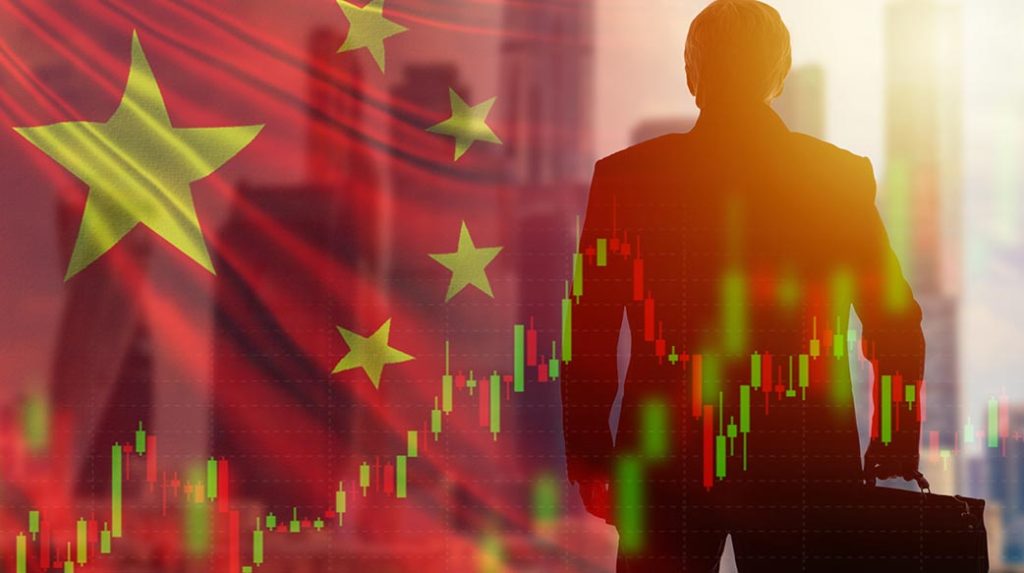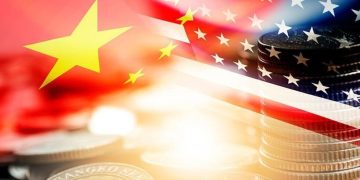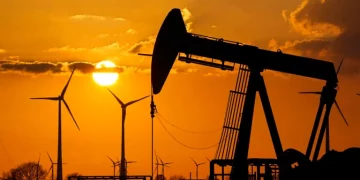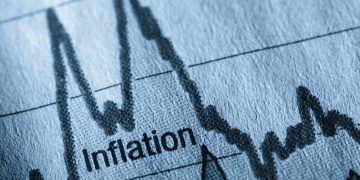Introduction
China has long been a driving force in the global economy, known for its rapid economic growth, large-scale manufacturing capabilities, and substantial influence on global trade and finance. As the world’s second-largest economy, any slowdown in China’s growth trajectory inevitably carries significant implications for global markets. The past few years have seen a noticeable deceleration in China’s economic growth, fueled by various factors such as tightening domestic policies, a transition from an export-driven model to a consumption-driven one, and structural challenges such as demographic shifts and environmental concerns.
In this article, we will explore the potential consequences of a slowing Chinese economy on global markets. Specifically, we will examine how China’s economic slowdown could affect trade, investment flows, supply chains, commodity prices, financial markets, and the broader geopolitical landscape. Understanding these dynamics is crucial for policymakers, investors, and businesses who are preparing for the ripple effects that may emerge from a decelerating Chinese economy.
1. Trade and Global Supply Chains
a. Impact on Global Trade Volumes
China is a global manufacturing hub and a key exporter of goods, from electronics to machinery and consumer products. As a result, any slowdown in China’s economy is likely to lead to a reduction in its export volumes. This, in turn, could impact countries that rely heavily on imports from China or that use Chinese goods as inputs for their own industries.
- Reduced Demand for Imports: A weaker Chinese economy may reduce domestic demand for foreign goods, especially those related to luxury items, high-end technology, and raw materials. Countries that rely heavily on exports to China, such as Australia (minerals), Brazil (soybeans), and many Southeast Asian nations (electronics and textiles), could see a decline in trade revenues.
- Supply Chain Disruptions: As the world’s manufacturing giant, China plays a crucial role in global supply chains. A slowdown in Chinese industrial output may disrupt the supply of various manufactured goods. This could lead to delays and shortages of critical components used in industries worldwide, such as automotive, electronics, and consumer goods.
b. Shifting Supply Chains: Diversification and Relocation
China’s slowing economy might prompt companies to reevaluate their dependence on Chinese supply chains. As labor costs in China increase and the country faces domestic challenges, businesses may look to diversify their production facilities or relocate them to other emerging markets.
- Nearshoring and Diversification: Companies may increasingly move their manufacturing to countries that offer lower labor costs or better access to regional markets, such as India, Vietnam, and Mexico. This shift could alter global supply chain dynamics, with long-term impacts on global trade patterns and the competitiveness of Chinese manufacturing.
- Resilience and Adaptation: While some companies might diversify away from China, the country’s role as a key part of the global supply chain is unlikely to disappear in the near future. Over the long term, Chinese businesses may adapt by transitioning toward higher-value manufacturing, such as automation and technology-driven industries, even as traditional industries face declines.
2. Commodity Prices and Global Inflation
a. Reduced Demand for Commodities
China is one of the world’s largest consumers of commodities such as oil, copper, steel, and coal. A slowdown in the Chinese economy would likely result in lower demand for these raw materials, with potential ripple effects throughout the global commodities markets.
- Declining Prices of Industrial Commodities: Lower demand from China could put downward pressure on the prices of key industrial commodities, including metals and energy resources. For instance, China’s reduced appetite for copper and steel could hurt prices in global markets, affecting resource-exporting countries like Chile and Australia. Similarly, a reduction in China’s oil consumption could dampen global oil prices, impacting oil-exporting countries such as Saudi Arabia and Russia.
- Impact on Inflation: For countries that heavily rely on commodity exports, a slowdown in Chinese demand can lead to lower prices, potentially reducing inflationary pressures. On the other hand, countries that are dependent on commodity imports might face more stable or even lower prices, providing some relief to inflationary concerns.
b. Shifting Trade Balances
As China’s demand for raw materials decreases, this could alter global trade balances. For countries that are major suppliers of commodities to China, a slowdown might result in lower trade revenues and weaker currency values. Conversely, countries that benefit from lower commodity prices, such as those in Europe or the United States, might experience reduced inflationary pressures, which could ease some economic challenges.
3. Financial Markets and Investment Flows
a. Declining Chinese Stock Market and Global Investment Sentiment
China’s slowing economic growth often translates into weaker performance in its financial markets. The stock market in China has been volatile, and as growth slows, investors may become increasingly risk-averse, leading to outflows of capital. These outflows could have a broader impact on global financial markets, particularly emerging market economies.
- Investment Flight to Safety: If Chinese economic conditions worsen, global investors may move capital out of China and into safer assets, such as U.S. Treasury bonds, gold, or stable currencies like the U.S. dollar and the Swiss franc. This shift could lead to increased volatility in emerging markets, as capital flight puts downward pressure on local currencies and stock markets.
- Pressure on Global Investment in Emerging Markets: As the Chinese economy decelerates, investors may become more cautious about investing in other emerging markets that are closely tied to China’s growth. Countries in Asia, Latin America, and Africa that rely on China for trade or investment may face diminished capital inflows and higher borrowing costs. As a result, global investment flows could become more concentrated in developed economies, especially those with stronger economic fundamentals.
4. Geopolitical Consequences
a. Influence on Global Power Dynamics
China’s economic slowdown could also affect its geopolitical influence on the global stage. As China struggles to maintain its economic momentum, it may have fewer resources to invest in infrastructure projects, military expansion, and soft power initiatives such as the Belt and Road Initiative (BRI). This could impact China’s ability to project influence, especially in developing regions of Africa, Asia, and Latin America.
- Shifting Alliances and Global Diplomacy: With a slowing economy, China’s role as a global economic and diplomatic leader may be challenged by other rising powers such as India and regional alliances like the European Union. This could lead to a shift in global power dynamics, as countries increasingly diversify their economic and political partnerships.
- Impact on Trade Deals and International Agreements: China’s reduced economic strength could also affect its ability to negotiate favorable trade deals and contribute to global organizations like the World Trade Organization (WTO). As China’s economic influence wanes, countries might reconsider their dependence on Chinese trade agreements and seek alternatives from other global powers.
b. Competition with the United States and the EU
A slowing Chinese economy might exacerbate competition between China and other major economic powers, particularly the United States and the European Union. This rivalry could manifest in trade wars, investment restrictions, and technological competition, particularly in key sectors such as semiconductors, clean energy, and artificial intelligence.
- Tech and Trade Wars: The United States has already imposed tariffs and restrictions on Chinese technology companies, and a slowing economy in China could lead to more aggressive policies on both sides. For example, trade negotiations may become more contentious, particularly in sectors where the U.S. and China are vying for leadership, such as technology and renewable energy.
- Rising Protectionism: As global competition intensifies, countries may adopt more protectionist trade policies to safeguard their own industries. This could manifest in increased tariffs, stricter regulations on foreign investments, and an overall decline in free trade, further hindering global economic growth.

5. Global Economic Growth and Recession Risks
a. Slower Global Growth
As China’s economy slows down, its ability to drive global economic growth diminishes. For years, China has been a major engine of global economic expansion, especially in developing countries. A slowdown in Chinese demand for goods and services could lead to a deceleration in global GDP growth.
- Reduced Growth in Developing Economies: Many developing countries, especially those in Asia, Africa, and Latin America, rely on China as a key trading partner and source of investment. A slowdown in Chinese economic activity could result in lower growth rates for these countries, potentially pushing them into recession or leading to higher unemployment.
- Global Economic Spillovers: The interconnectivity of the global economy means that a slowdown in China could trigger a chain reaction in other regions. For example, countries that are major exporters to China might face weaker economic performance, while global companies with operations in China may cut back on investment and production, leading to lower global demand.
b. Risk of a Global Recession
If China’s economic slowdown deepens, it could have far-reaching consequences for the global economy. A prolonged economic deceleration could trigger a global recession, especially if other key economies, such as the U.S. and the Eurozone, are also facing challenges. In such a scenario, global growth could be sluggish for years to come, impacting everything from employment to investment to consumer spending.
Conclusion
China’s economic slowdown will undoubtedly have wide-reaching effects on global markets, affecting trade, investment flows, commodity prices, financial markets, and geopolitical dynamics. While the short-term effects may be more immediately visible—such as reduced trade volumes, lower commodity prices, and financial market volatility—the long-term consequences could alter the global economic landscape in fundamental ways.
As the world’s second-largest economy, China’s growth has been a key engine for global economic expansion for over a decade. A slowdown in its economy represents a major shift in the dynamics of the global marketplace. Policymakers, businesses, and investors must be prepared for the challenges and opportunities that arise from this shift, as the effects of China’s economic deceleration continue to ripple through global markets.













































